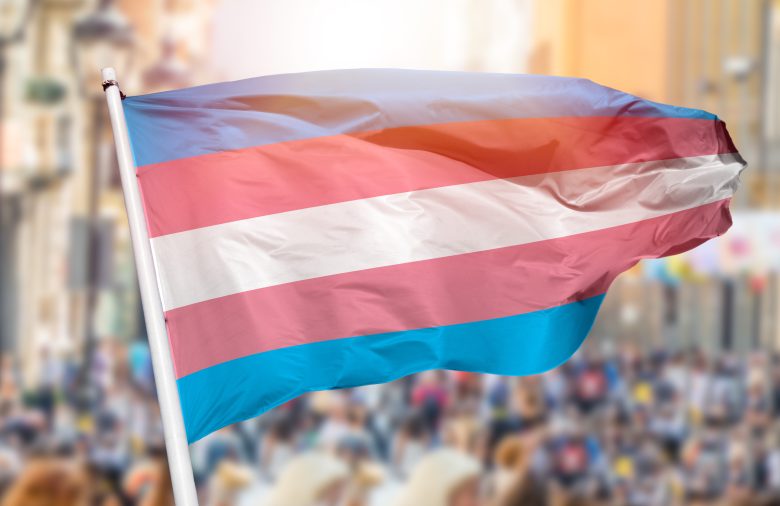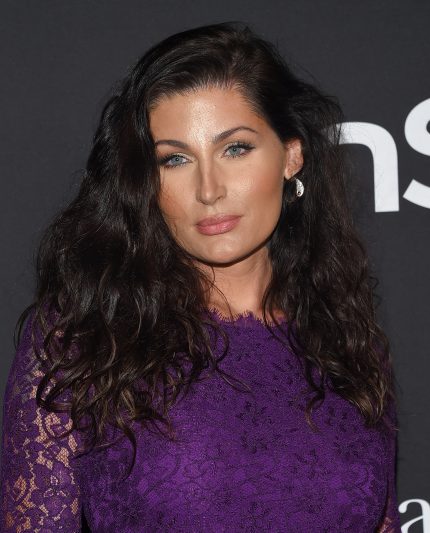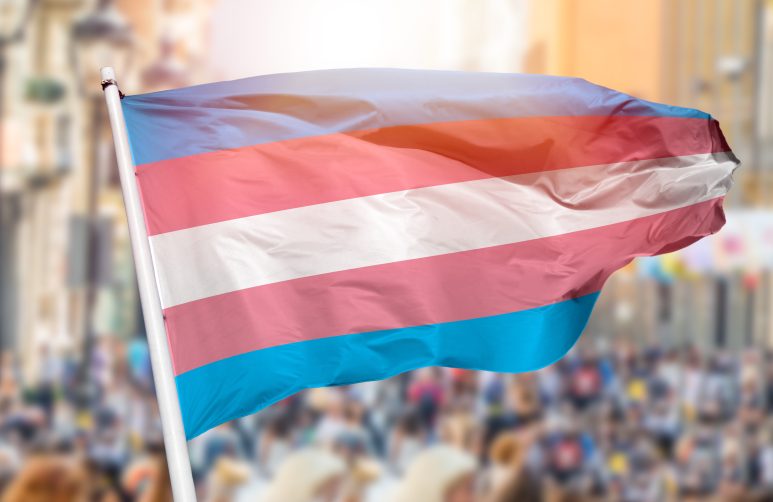By Temi Bolorunduro
Incomparable, is how I would describe Trace Lysette. The striking starlet debuts as a leading lady in Andrea Pallaoro’s ‘Monica. But the ‘Transparent’ star’s rise to prominence has been anything but meteoritic. From finding family in the New York ballroom scene to playing the titular role in a feature,her story embodies both the strife and untapped power of transwomen.
‘Monica’ opened to a rapturous reception at its debut at Venice Film Festival on 3 September 2022, with Lysette and her co-stars standing for an 11-minute ovation following the film’s premier.

Pallaoro’s tome explores the relationship between a daughter and her estranged ailing mother as she returns home to care for her. In contrast to other mainstream depictions of the trans experiences, Monica steers clear of overplayed cliches centring the character’s transition a la 2016’s Danish Girl or the woes and traumas experienced by transwomen often culminating in their ultimate demise.
The narratives we consume play a pivotal role in how we view ourselves and others. And for so long Hollywood’s focus has often stripped trans people of their agency and power, frequently going as far as casting cis actors to tell one-dimensional stories.
The history of trans representation in media has been full of dehumanising fetishization, tokenism and the vilification of trans people. Roles such as Buffalo Bill and Norman Bates portray atypical gender expression as deviant behaviour with pre-empts murderous violence, typically against cis women. Other depictions see trans people reduced to punchlines about their assumed genitalia.
As stated by GLAAD President Herndon Graddick, “Media has a history of telling the world a story that transgender people are always victims or villains, instead of true depictions that show the transgender community as citizens worthy of equality and respect.”
It is not only scripted media which suffers from transphobic narratives, unscripted productions such as 2003’s ‘There’s something about Miriam’, also convey messages which perpetuate the idea that trans bodies are shameful, lustful or be concealed.
Offscreen, the last few years have seen an increase in anti-trans discourse as ‘gender critical’ ideologies have become embedded in mainstream conversations. These talking points have been legitimised and given prominence by writers such as JK Rowling and Chimamanda Ngozi Adichie. Also, organisations such as LGB Alliance which advocates that trans rights harm the rights of Lesbian, Gay, and Bisexual people, which have furthered anti-trans sentiments in the mainstream. The normalisation of transphobic talking points, which have mostly taken aim at transwomen, have fuelled the proliferation of anti-trans legislature in the US which result in the erasure of trans people from public life. In the UK, the torrent of anti-trans rhetoric has led to the proposed removal of legal protections for transgender people in the Equality Act (2010) by the conservative government.
“There is certainly some trans representation happening within UK media, especially like scripted media, but it’s also met with a massive wave of anti-trans rhetoric in the press and this bleeds into lots of other aspects of the media,” says trans historian, filmmaker and artist, Morgan M. Page.
The trans panic has found fertile breeding ground within UK press with the Times and Sunday Times publishing over 300 negative articles on trans identities in 2020, almost one a day. Recently following an onslaught of transphobia, the charity Mermaids was forced to shut down its helpline for the day.
“There is a huge interest in trans life and trans stories at the moment, often framed as a new issue but it is exactly the same conversation that happened in the 90s and also in the 70s, when trans people exploded into the media, there’s a big backlash,” Page tells MDI.
Why the backlash? There is a myriad of reasons for which the dominant culture reacts negatively to those who have been marginalised. But the most imperative reason appears to be discomfort. Not because of transness specifically, but in relation to the loss of a power relationship and the inherent fear that those that have been othered will suddenly gain agency and power.

Actress Trace Lysette
‘Monica’ comes at what feels like a critical cultural moment in public discourse relating to trans identities. In this current context, films and other media which take the meticulous steps to portray the complexities and nuances of the trans experience, play a pivotal role in changing societal narratives. It is important that we treat these stories with care and consideration of the communities being portrayed by creating opportunities for them to lead the conversation.
Whilst it is important to celebrate the shifting codes of trans representation within entertainment, there are limits to representational politics.
“Even in projects when you see a trans actor you rarely see a trans director, writer or producer. The people making the decisions of what stories to tell, why and what it means are usually not trans people,” Page adds.
Therefore, to progress the narrative on trans issues, it is important to have work produced by trans people which looks out at the world through a trans perspective.
It is equally important to recognise the growing hostility of traditional media and conservative governments. With increased visibility comes closer scrutiny and unprecedented conflicts.In the UK and US, trans healthcare is coming under serious threats and the ability to exist in the public more difficult.
‘Monica’ tells a universal tale about difficult parental relationships, patience, and forgiveness in which transness happens to be a compounding factor. However, whilst this story is universal, the trans experience is singular and just when trans people are gaining representation and visibility onscreen they are simultaneously being forced back into the closet by hostile laws and media afraid of the power of transgressive narratives.
There are a multitude of stories being told of trans people;, stories about love, animosity and heroes. Stories that are informed by the experiences of people like Lysette and other trailblazers who breakdown barriers for all types of people. It is critical that the space, opportunity and capital be available for trans filmmakers to tell their stories.
______________________________________________________________________________________
Photo Credits: DFree / Shutterstock

